
There's always something new and exciting at Berks' area colleges and universities, and those happenings don't always just benefit the students enrolled there. See how what's going on at Albright, Alvernia, RACC, Penn State Berks and Kutztown University might apply to you, too.
Albright Invests $19.4 Million in Library Expansion
A 21st century college education demands a 21st century library. A library that infuses studying with technology, that immerses learning in collaboration, that mixes traditional materials with new media, that supplements student initiative with expert support.
Albright College stands poised to give its students and faculty just such a vital resource, as it proceeds with plans to remake the academic center of its campus with a complete renovation and significant expansion of its F. Wilbur Gingrich Library.
The $19.4 million project will modernize the facility through a comprehensive integration of technology and a re-imagining of study and work spaces to reflect how students’ learning styles have evolved. It will also increase its size. The original building was completed in 1964, when the College’s student population was only a bit more than half the current daytime undergraduate population of about 1,700.
The addition of a learning commons on the first floor will consolidate the Academic Learning Center, Writing Center and Disability Services in the new Falcone Center for Academic Success. A Center for Teaching Excellence will provide resources for faculty members to enhance their pedagogical skills. And the Edwin & Alma N. ’51 Lakin Holocaust Library & Resource Center will have a handsome new home.
Among the Library’s innovations will be the relocation of Information Technology Services to the new facility. The help desk will be integrated with the circulation desk in the learning commons, centralizing related library and technology services in a more student-friendly way.
As it did with John K. Roessner III ’61 Hall: The Center for Business and Civic Leadership, which opened in the fall of 2014, the College is designing gathering spaces that reflect the changes in how students study and learn. In addition to giving them conference rooms, smaller study spaces and carrels to work in, the new Library will offer plenty of open seating areas for less formal interaction.
The visual centerpiece of the project is a striking tower on the building’s southeast corner that will house on successive floors a gallery and exhibition space, a multipurpose teaching space, a reading room, and a special events space offering a dazzling fourth-floor view of campus. Floor-to-ceiling windows, specially treated to protect books from sunlight, will brighten the building’s interior.
Albright leaders see the overhauled Library as an attractive addition to the tree-lined streets and stone houses of College Heights. The building’s design, both contemporary and graceful, complements the campus’s existing architecture and gives Albright’s neighbors an enhanced facility to use.

610.921.2381
albright.edu

Photo by Ed Kopicki
Neags Fund New Nursing Scholarships at Alvernia University
A new nursing scholarship program is now available at Alvernia University, made possible by a $2.25 million gift from Carole and Ray Neag.
The Neag Nursing Scholarship Program will provide multiple scholarships each year to students enrolling in Alvernia’s popular nursing degree program. The first several scholarships were awarded within days of the announcement, during a luncheon for the incoming Class of 2020.
Carole and Ray Neag are among Alvernia’s most generous benefactors, with a long history of philanthropic support of the university. Carole is a former emergency and maternity nurse who also worked to implement injury-prevention standards. She previously served as a member of the university’s Board of Trustees and is a trustee emerita. Ray is the retired co-founder, vice chairman and director of Arrow International, an innovator in the use of catheterization for diagnosis and treatment of cardiac diseases.
Ray and I share a strong interest in nursing,” says Carole Neag. “By investing in the next generation of nurses to help them obtain outstanding training from a values-based university like Alvernia, we can make a positive difference in the lives of so many others in the future.”
Of the multiple scholarships awarded each year, one will be presented annually to a top Reading Collegiate Scholar who is interested in entering Alvernia’s nursing program. Launched in 2013, Alvernia’s Reading Collegiate Scholars Program is geared to prepare larger numbers of high school students from Reading to attend and succeed at the college of their choice.
“We remain humbled by the Neags’ continued confidence in the value of an Alvernia education. Truly they understand and support our determination as a distinctive Franciscan university to develop ethical leaders with moral courage and graduates that leave our campus prepared to do well and do good,” says Alvernia President Thomas F. Flynn. “The Neags’ recent gift is providing critical support for the institution’s growth in the broader healthcare science field, which will soon be realized on an even greater scale with creation of a planned state-of-the-art recreation, wellness, and health sciences complex, called the Plex.”
The Plex will support high-demand health science programs that require flexible, general-use classrooms, as well as additional specialized and integrated spaces to support the growth of sports medicine, athletic training and physical therapy programs. It will also enable new opportunities for inter-professional teaching that integrates real-world training for students in programs like occupational therapy, nursing and social work.

1.888.alvernia
alvernia.edu

Photo by John A. Secoges, Secoges Photographics
Reading Area Community College Offers Technical Training & More
Reading Area Community College (RACC) is an accredited, comprehensive, open-enrollment education institution serving Berks County. Sponsored by the Berks County Commissioners, the College provides affordable access to meet community educational needs through workforce development, associate degree offerings, the first two years of college for transferring students, and careers in two years or less. RACC is currently the only Hispanic Serving Institution (HSI) in the state of Pennsylvania.
RACC offers more than 35 associate degree programs, 20 certificate or diploma programs, and many more non-credit community education programs. RACC also partners with local high schools to offer dual enrollment and early admissions programs. Additionally, RACC is a partner in the Berks County Technical Academy, which offers students a pathway for developing advanced skills and earning college credits toward an associate and/or bachelor's degree while still in high school at no cost.
Dual Admissions allows students to apply to RACC and one of our partner four-year schools at the same time through one of our dual admission agreements. These agreements maximize the transferability of courses and offer a smoother transition to a four-year school. Some of the agreements have extra benefits, like the ability to take classes at the partner school while still enrolled at RACC or the opportunity to qualify for great scholarships upon completing a degree at RACC.
Chief among RACC’s standout features is its Schmidt Training & Technology Center. The Center provides training in senior leadership, manufacturing technology, information technology, workplace readiness and workplace literacy. RACC also partners with other community organizations to enhance the economic vitality of the city and county.
RACC’s Mechatronics Engineering Technology A.A.S. Program prepares students for careers as engineering technicians in diversified manufacturing. Students gain knowledge and skills in blueprint reading, mechanics, pneumatics, hydraulics, electricity, motors, motor control, programmable logic controls, robotics and motion control, process control, instrumentation and computer integrated manufacturing. Emphasis is placed on predictive maintenance, troubleshooting and hands-on application of mechanical, electrical and controls skills. The Mechatronics program is also available as non-credit courses for those seeking to become certified in Advanced Manufacturing Integrated Systems Technology (AM/IST).
The Workforce and Economic Development/Community Education Division is committed to providing opportunities for adults to gain new knowledge and skills through formal and informal study. Other short-term career training programs at the College include several certificate programs in Business Occupational Training, including Junior Accountant and Administrative Assistant, and others in Medical Occupational Training, which includes Dental Assistant, Nurse Aide and Medical Insurance and Billing Specialist.
.jpg.jpe)
610.372.4721
racc.edu

Photo courtesy Penn State Berks
Engaged Scholarship at Penn State Berks Helps Students Succeed
By Dr. Paul Esqueda, Senior Associate Dean of Academic Affairs
When Penn State University President Eric Barron took office, he established a goal that all Penn State students should have at least one “engaged scholarship” experience by the year 2020. Engaged scholarship is defined as "out-of-classroom academic experiences that complement in-classroom learning." It includes activities such as undergraduate research, internships, study abroad, service learning, and experiential learning, among other activities.
At Penn State Berks, most students are well on their way to exceeding this goal. Students have the opportunity to conduct research one-on-one with faculty members, and many have co-authored research papers and attended conferences across the country. Their research is as diverse as the University’s disciplines, ranging from the study of host genes that are modified upon viral infection, to building a quadcopter to estimate flight patterns, to investigating sexism in comic book culture.
Internships are another important part of students’ education. Each baccalaureate degree program includes a senior capstone or an internship component. Students complete more than 250 internships each semester, like working in such high profile organizations as the Office of the Chief Information Officer at the White House, or Google's California headquarters, as well as with many local organizations.
Education abroad gives students an international perspective. These programs are no longer only for students who have internationally focused majors. Programs can be completed in one or two weeks as part of a course, or in a summer, a semester, or an academic year.
On campus, the college’s infrastructure supports engaged scholarship through three centers: the Center for Service Learning and Community-Based Research; the Creativity, Entrepreneurship, and Economic Development (CEED) Center; and the Berks Learning Factory.
The Center for Service Learning and Community-Based Research challenges students to become engaged citizens by connecting them through coursework with real issues facing the community. Students are serving their community while developing a deeper understanding of core concepts in their fields.
The CEED Center serves as an incubator for innovation and community outreach. Several collaborative initiatives have been undertaken between students, faculty, business and industry leaders, and members of organizations from around the world.
.jpg.jpe)
610.396.6000
bk.psu.edu

Photo courtesy Kutztown University
Kutztown University Celebrates its Sesquicentennial in 2016
Pennsylvania’s Free School Act of 1834 provided for a system of state-aided schools; however, the Civil War and a lack of quality teachers had left these schools in poor condition. The Normal School Act of 1857 was passed to create a set of standards and a pool of educated teachers who could advance the school system.
What is now KU can be traced back to the Maxatawny Seminary, which opened in September 1864 with a three-story brick building and five acres of land. At that time, area leaders were looking for an appropriate spot for the local normal school.
Among the towns being considered, Hamburg and Fogelsville were leading the charge.
It was Berks County School Superintendent John S. Ermentrout who, while riding from Lyons to Kutztown, had the idea of bringing the normal school to Maxatawny.
In 1865, five acres of land were purchased next to Maxatawny Seminary and a large addition was built on the west side of the seminary building. On Sept. 15, 1866, Keystone State Normal School was recognized as the official normal school serving Berks, Lehigh and Schuylkill counties.
The school would become Kutztown State Teachers College in 1928 and then Kutztown State College in 1960. In 1983 the school officially became Kutztown University of Pennsylvania.
KU plans to end the celebration with Founders’Week, Sept. 9 through 15.
Friday, Sept. 9
PSECU Founders’ Week Kickoff, Noon & 5pm
Alumni Auditorium, McFarland Student Union
The program includes a brief presentation and the premiere of a 30-minute documentary produced by KU Electronic Media students.
Saturday, Sept. 10
KU Sesquicentennial Parade, 11am
This grand celebration will begin on campus and head downtown into the Borough of Kutztown.
PSECU Founders’ Week Football Game & Fireworks Spectacular, 5pm
University Field at Andre Reed Stadium
Sunday, Sept. 11
Multi-faith Community Service of Celebration, 7pm
Schaeffer Auditorium
Guest speaker Dr. Gregory Edwards, pastor, Resurrected Life Church
Monday, Sept. 12
Speakers’ Forum featuring Noor Tagouri: A Storyteller's Keys to Success, Passions, and Identity, 7pm
Schaeffer Auditorium
Tuesday, Sept. 13
Celebrate 150 with Avalanche, 11am to 1pm
McFarland Student Union Lawn
Wednesday, Sept. 14
PSECU Founders’ Week 5K Cross Country Run, 6:30pm
North Campus Cross Country Course
Entry fee: $25; $15 for KU students. Includes T-shirt, post-race refreshments, and age category awards.
Thursday, Sept. 15
PSECU Founders’ Day 150th Birthday Party, 11am to 1pm
Alumni Plaza
A short program including keynote speakers and the placement of the 150th time capsule.
KU Presents! TONY winner Kelli O’Hara, 7:30pm
Schaeffer Auditorium
For more info visit kutztown.edu/150

610.683.4000
kutztown.edu
There's always something new and exciting at Berks' area colleges and universities, and those happenings don't always just benefit the students enrolled there. See how what's going on at Albright, Alvernia, RACC, Penn State Berks and Kutztown University might apply to you, too.
Albright Invests $19.4 Million in Library Expansion
A 21st century college education demands a 21st century library. A library that infuses studying with technology, that immerses learning in collaboration, that mixes traditional materials with new media, that supplements student initiative with expert support.
Albright College stands poised to give its students and faculty just such a vital resource, as it proceeds with plans to remake the academic center of its campus with a complete renovation and significant expansion of its F. Wilbur Gingrich Library.
The $19.4 million project will modernize the facility through a comprehensive integration of technology and a re-imagining of study and work spaces to reflect how students’ learning styles have evolved. It will also increase its size. The original building was completed in 1964, when the College’s student population was only a bit more than half the current daytime undergraduate population of about 1,700.
The addition of a learning commons on the first floor will consolidate the Academic Learning Center, Writing Center and Disability Services in the new Falcone Center for Academic Success. A Center for Teaching Excellence will provide resources for faculty members to enhance their pedagogical skills. And the Edwin & Alma N. ’51 Lakin Holocaust Library & Resource Center will have a handsome new home.
Among the Library’s innovations will be the relocation of Information Technology Services to the new facility. The help desk will be integrated with the circulation desk in the learning commons, centralizing related library and technology services in a more student-friendly way.
As it did with John K. Roessner III ’61 Hall: The Center for Business and Civic Leadership, which opened in the fall of 2014, the College is designing gathering spaces that reflect the changes in how students study and learn. In addition to giving them conference rooms, smaller study spaces and carrels to work in, the new Library will offer plenty of open seating areas for less formal interaction.
The visual centerpiece of the project is a striking tower on the building’s southeast corner that will house on successive floors a gallery and exhibition space, a multipurpose teaching space, a reading room, and a special events space offering a dazzling fourth-floor view of campus. Floor-to-ceiling windows, specially treated to protect books from sunlight, will brighten the building’s interior.
Albright leaders see the overhauled Library as an attractive addition to the tree-lined streets and stone houses of College Heights. The building’s design, both contemporary and graceful, complements the campus’s existing architecture and gives Albright’s neighbors an enhanced facility to use.

610.921.2381
albright.edu
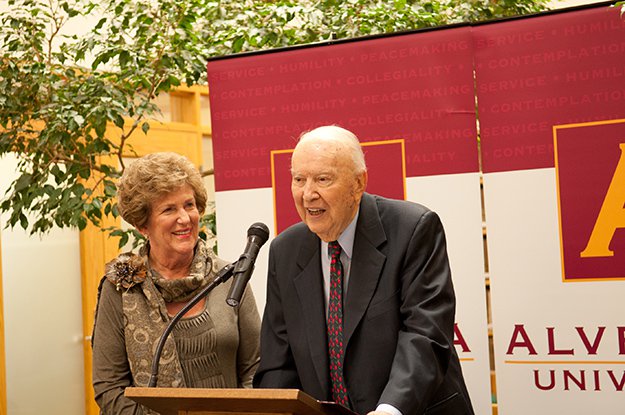
Photo by Ed Kopicki
Neags Fund New Nursing Scholarships at Alvernia University
A new nursing scholarship program is now available at Alvernia University, made possible by a $2.25 million gift from Carole and Ray Neag.
The Neag Nursing Scholarship Program will provide multiple scholarships each year to students enrolling in Alvernia’s popular nursing degree program. The first several scholarships were awarded within days of the announcement, during a luncheon for the incoming Class of 2020.
Carole and Ray Neag are among Alvernia’s most generous benefactors, with a long history of philanthropic support of the university. Carole is a former emergency and maternity nurse who also worked to implement injury-prevention standards. She previously served as a member of the university’s Board of Trustees and is a trustee emerita. Ray is the retired co-founder, vice chairman and director of Arrow International, an innovator in the use of catheterization for diagnosis and treatment of cardiac diseases.
Ray and I share a strong interest in nursing,” says Carole Neag. “By investing in the next generation of nurses to help them obtain outstanding training from a values-based university like Alvernia, we can make a positive difference in the lives of so many others in the future.”
Of the multiple scholarships awarded each year, one will be presented annually to a top Reading Collegiate Scholar who is interested in entering Alvernia’s nursing program. Launched in 2013, Alvernia’s Reading Collegiate Scholars Program is geared to prepare larger numbers of high school students from Reading to attend and succeed at the college of their choice.
“We remain humbled by the Neags’ continued confidence in the value of an Alvernia education. Truly they understand and support our determination as a distinctive Franciscan university to develop ethical leaders with moral courage and graduates that leave our campus prepared to do well and do good,” says Alvernia President Thomas F. Flynn. “The Neags’ recent gift is providing critical support for the institution’s growth in the broader healthcare science field, which will soon be realized on an even greater scale with creation of a planned state-of-the-art recreation, wellness, and health sciences complex, called the Plex.”
The Plex will support high-demand health science programs that require flexible, general-use classrooms, as well as additional specialized and integrated spaces to support the growth of sports medicine, athletic training and physical therapy programs. It will also enable new opportunities for inter-professional teaching that integrates real-world training for students in programs like occupational therapy, nursing and social work.
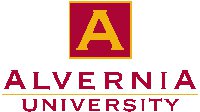
1.888.alvernia
alvernia.edu
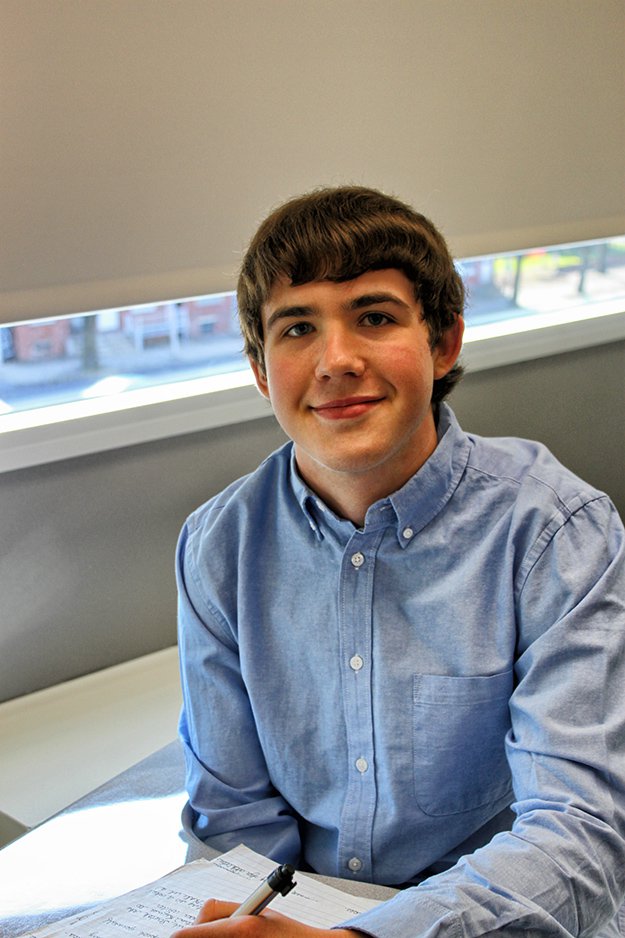
Photo by John A. Secoges, Secoges Photographics
Reading Area Community College Offers Technical Training & More
Reading Area Community College (RACC) is an accredited, comprehensive, open-enrollment education institution serving Berks County. Sponsored by the Berks County Commissioners, the College provides affordable access to meet community educational needs through workforce development, associate degree offerings, the first two years of college for transferring students, and careers in two years or less. RACC is currently the only Hispanic Serving Institution (HSI) in the state of Pennsylvania.
RACC offers more than 35 associate degree programs, 20 certificate or diploma programs, and many more non-credit community education programs. RACC also partners with local high schools to offer dual enrollment and early admissions programs. Additionally, RACC is a partner in the Berks County Technical Academy, which offers students a pathway for developing advanced skills and earning college credits toward an associate and/or bachelor's degree while still in high school at no cost.
Dual Admissions allows students to apply to RACC and one of our partner four-year schools at the same time through one of our dual admission agreements. These agreements maximize the transferability of courses and offer a smoother transition to a four-year school. Some of the agreements have extra benefits, like the ability to take classes at the partner school while still enrolled at RACC or the opportunity to qualify for great scholarships upon completing a degree at RACC.
Chief among RACC’s standout features is its Schmidt Training & Technology Center. The Center provides training in senior leadership, manufacturing technology, information technology, workplace readiness and workplace literacy. RACC also partners with other community organizations to enhance the economic vitality of the city and county.
RACC’s Mechatronics Engineering Technology A.A.S. Program prepares students for careers as engineering technicians in diversified manufacturing. Students gain knowledge and skills in blueprint reading, mechanics, pneumatics, hydraulics, electricity, motors, motor control, programmable logic controls, robotics and motion control, process control, instrumentation and computer integrated manufacturing. Emphasis is placed on predictive maintenance, troubleshooting and hands-on application of mechanical, electrical and controls skills. The Mechatronics program is also available as non-credit courses for those seeking to become certified in Advanced Manufacturing Integrated Systems Technology (AM/IST).
The Workforce and Economic Development/Community Education Division is committed to providing opportunities for adults to gain new knowledge and skills through formal and informal study. Other short-term career training programs at the College include several certificate programs in Business Occupational Training, including Junior Accountant and Administrative Assistant, and others in Medical Occupational Training, which includes Dental Assistant, Nurse Aide and Medical Insurance and Billing Specialist.
.jpg.jpe)
610.372.4721
racc.edu
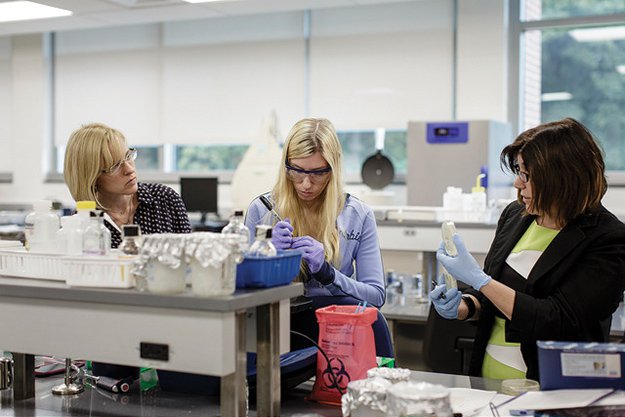
Photo courtesy Penn State Berks
Engaged Scholarship at Penn State Berks Helps Students Succeed
By Dr. Paul Esqueda, Senior Associate Dean of Academic Affairs
When Penn State University President Eric Barron took office, he established a goal that all Penn State students should have at least one “engaged scholarship” experience by the year 2020. Engaged scholarship is defined as "out-of-classroom academic experiences that complement in-classroom learning." It includes activities such as undergraduate research, internships, study abroad, service learning, and experiential learning, among other activities.
At Penn State Berks, most students are well on their way to exceeding this goal. Students have the opportunity to conduct research one-on-one with faculty members, and many have co-authored research papers and attended conferences across the country. Their research is as diverse as the University’s disciplines, ranging from the study of host genes that are modified upon viral infection, to building a quadcopter to estimate flight patterns, to investigating sexism in comic book culture.
Internships are another important part of students’ education. Each baccalaureate degree program includes a senior capstone or an internship component. Students complete more than 250 internships each semester, like working in such high profile organizations as the Office of the Chief Information Officer at the White House, or Google's California headquarters, as well as with many local organizations.
Education abroad gives students an international perspective. These programs are no longer only for students who have internationally focused majors. Programs can be completed in one or two weeks as part of a course, or in a summer, a semester, or an academic year.
On campus, the college’s infrastructure supports engaged scholarship through three centers: the Center for Service Learning and Community-Based Research; the Creativity, Entrepreneurship, and Economic Development (CEED) Center; and the Berks Learning Factory.
The Center for Service Learning and Community-Based Research challenges students to become engaged citizens by connecting them through coursework with real issues facing the community. Students are serving their community while developing a deeper understanding of core concepts in their fields.
The CEED Center serves as an incubator for innovation and community outreach. Several collaborative initiatives have been undertaken between students, faculty, business and industry leaders, and members of organizations from around the world.
.jpg.jpe)
610.396.6000
bk.psu.edu
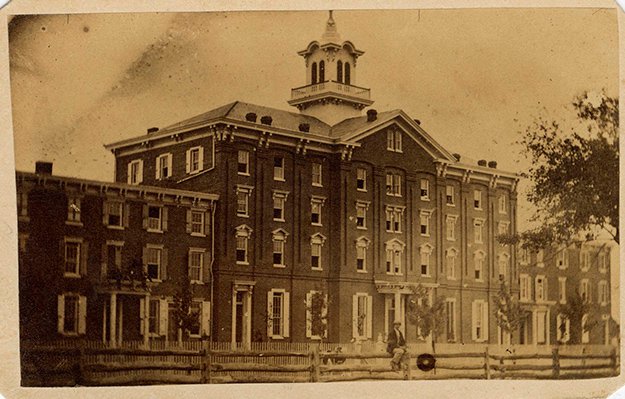
Photo courtesy Kutztown University
Kutztown University Celebrates its Sesquicentennial in 2016
Pennsylvania’s Free School Act of 1834 provided for a system of state-aided schools; however, the Civil War and a lack of quality teachers had left these schools in poor condition. The Normal School Act of 1857 was passed to create a set of standards and a pool of educated teachers who could advance the school system.
What is now KU can be traced back to the Maxatawny Seminary, which opened in September 1864 with a three-story brick building and five acres of land. At that time, area leaders were looking for an appropriate spot for the local normal school.
Among the towns being considered, Hamburg and Fogelsville were leading the charge.
It was Berks County School Superintendent John S. Ermentrout who, while riding from Lyons to Kutztown, had the idea of bringing the normal school to Maxatawny.
In 1865, five acres of land were purchased next to Maxatawny Seminary and a large addition was built on the west side of the seminary building. On Sept. 15, 1866, Keystone State Normal School was recognized as the official normal school serving Berks, Lehigh and Schuylkill counties.
The school would become Kutztown State Teachers College in 1928 and then Kutztown State College in 1960. In 1983 the school officially became Kutztown University of Pennsylvania.
KU plans to end the celebration with Founders’Week, Sept. 9 through 15.
Friday, Sept. 9
PSECU Founders’ Week Kickoff, Noon & 5pm
Alumni Auditorium, McFarland Student Union
The program includes a brief presentation and the premiere of a 30-minute documentary produced by KU Electronic Media students.
Saturday, Sept. 10
KU Sesquicentennial Parade, 11am
This grand celebration will begin on campus and head downtown into the Borough of Kutztown.
PSECU Founders’ Week Football Game & Fireworks Spectacular, 5pm
University Field at Andre Reed Stadium
Sunday, Sept. 11
Multi-faith Community Service of Celebration, 7pm
Schaeffer Auditorium
Guest speaker Dr. Gregory Edwards, pastor, Resurrected Life Church
Monday, Sept. 12
Speakers’ Forum featuring Noor Tagouri: A Storyteller's Keys to Success, Passions, and Identity, 7pm
Schaeffer Auditorium
Tuesday, Sept. 13
Celebrate 150 with Avalanche, 11am to 1pm
McFarland Student Union Lawn
Wednesday, Sept. 14
PSECU Founders’ Week 5K Cross Country Run, 6:30pm
North Campus Cross Country Course
Entry fee: $25; $15 for KU students. Includes T-shirt, post-race refreshments, and age category awards.
Thursday, Sept. 15
PSECU Founders’ Day 150th Birthday Party, 11am to 1pm
Alumni Plaza
A short program including keynote speakers and the placement of the 150th time capsule.
KU Presents! TONY winner Kelli O’Hara, 7:30pm
Schaeffer Auditorium
For more info visit kutztown.edu/150
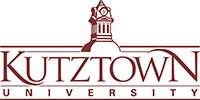
610.683.4000
kutztown.edu
















